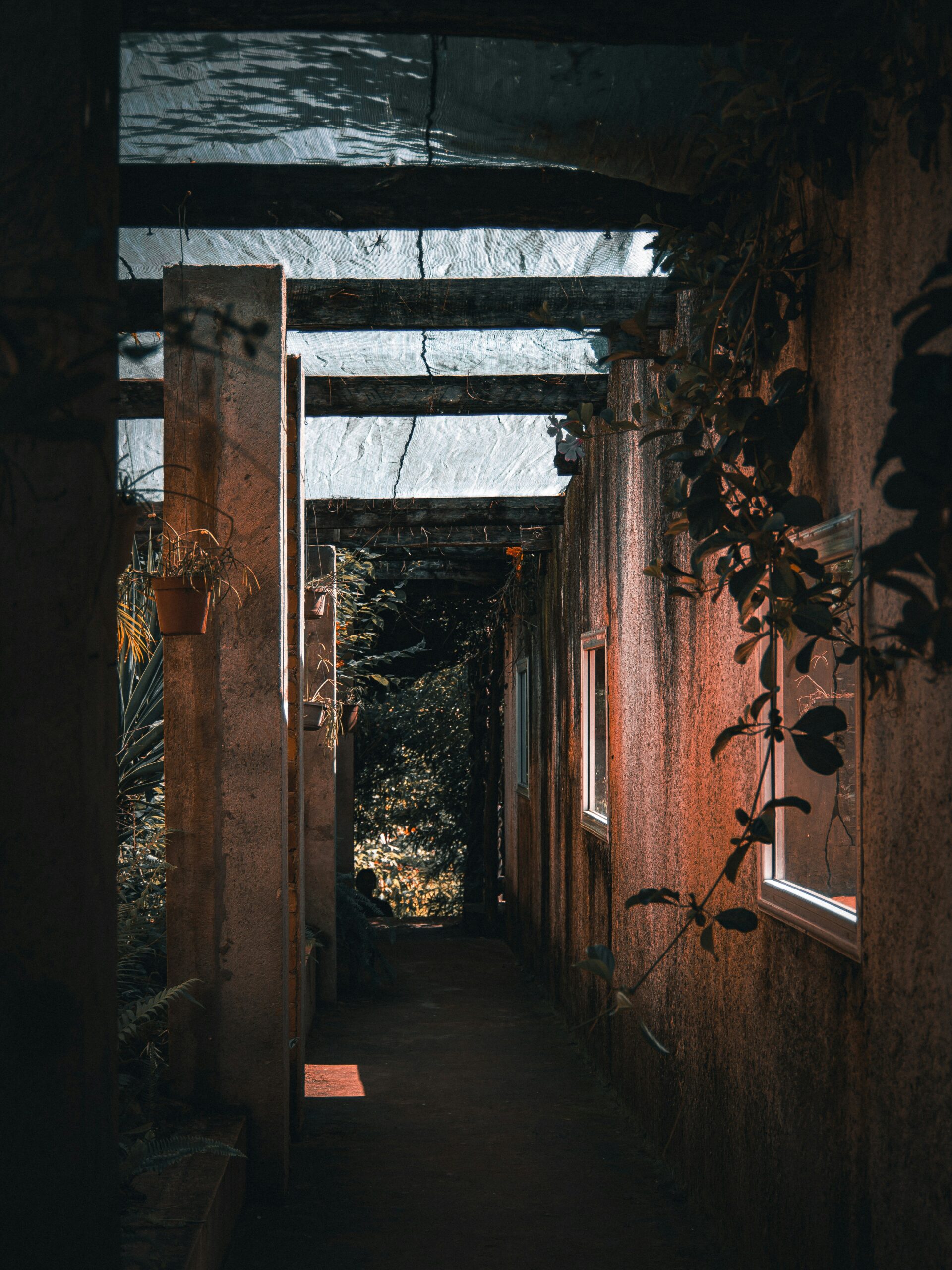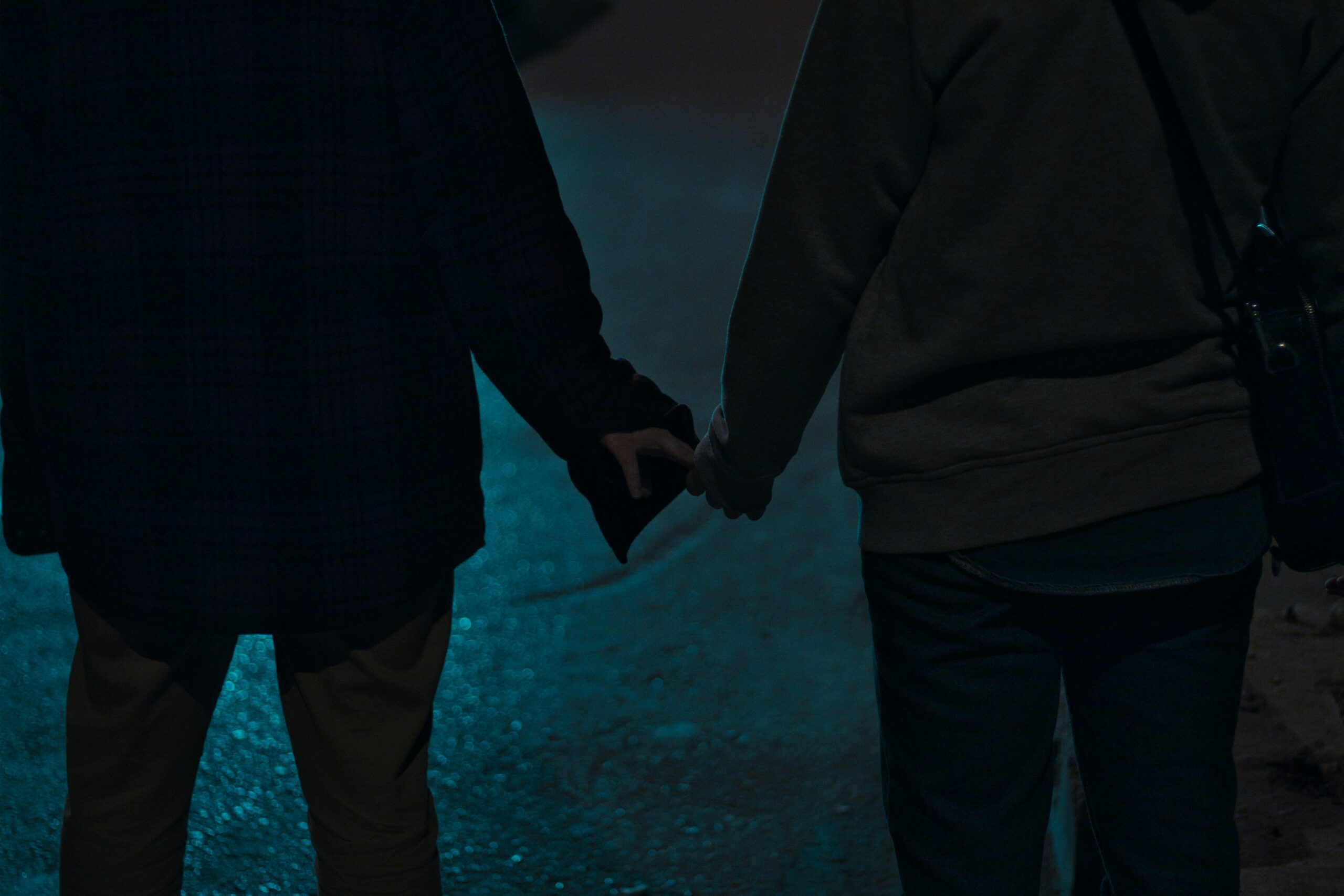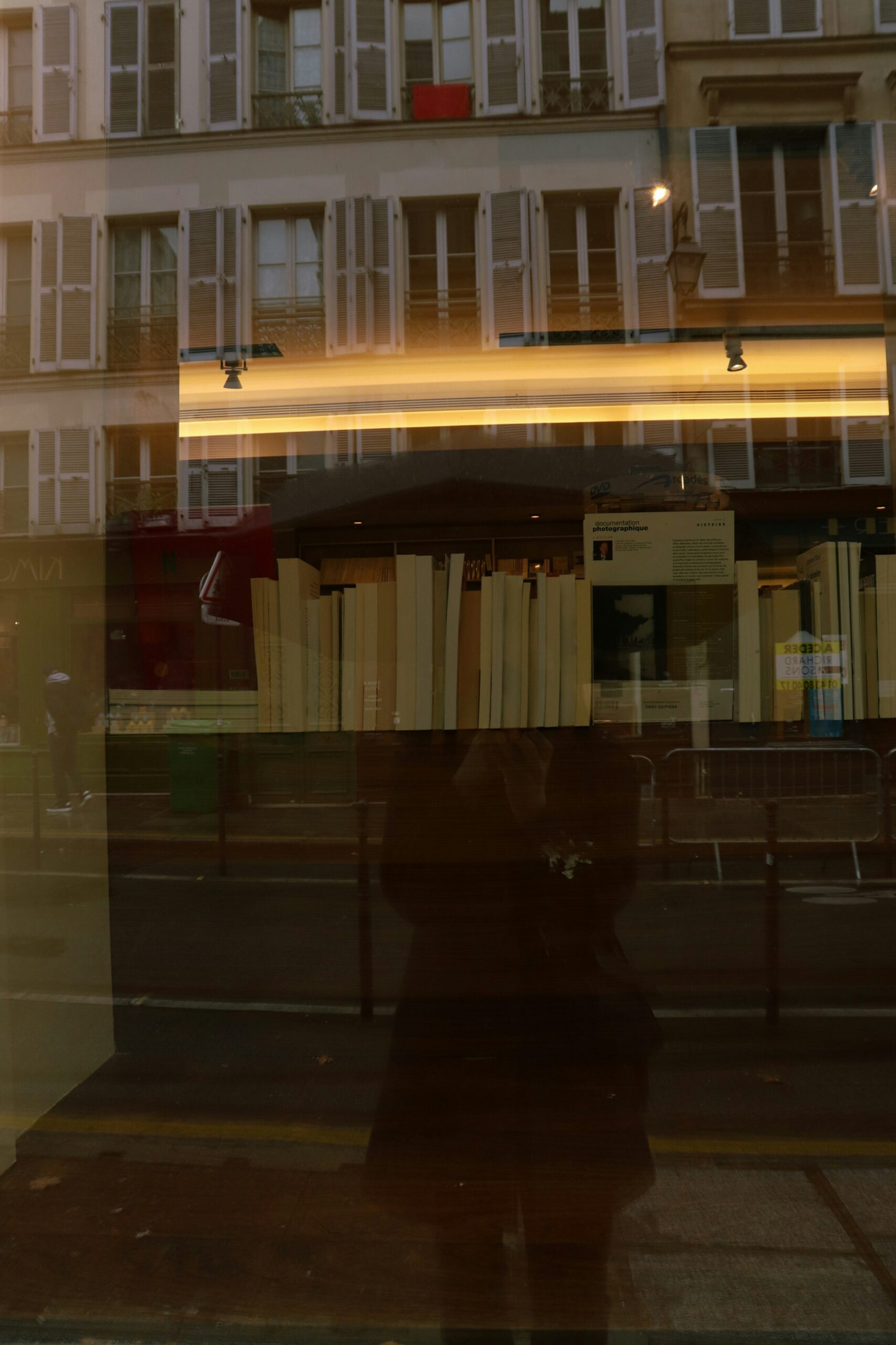| Mariam | Short Story | July 2025 |
You wake up feeling anxious. You don’t remember if you had a bad dream or if you twisted yourself into a strange posture in your sleep again. You feel gravel in your chest. The sun is barely visible on the horizon. You’ve taken an unusually long afternoon nap.
You are watching a mosquito trapped in the net around your bed. Earlier that month, you had stayed up a whole night scratching your arms. In the morning, you had shown Acha your red, swollen arms with the bite marks. That very day, Acha had gone and brought you a mosquito net. When Acha helped you put it up, neither of you had anticipated that it would be sweltering underneath it. But you decided that the uncomfortable, sticky heat was better than the bites. You resorted to taking a late-night cold shower just before bed every night since then.
You can hear the TV downstairs. A steep flight of stairs leads to the living room. The evening news bulletin is recounting headlines from earlier in the day. Acha has gone out to buy pazhamporis. You sit cross-legged on the sofa. Two cups are placed on the small teapoy in front of you. Yours, an old black mug from when you were in college, and Acha’s, a once clear glass that now has stains along its inside from years of holding black tea. You often think about why these cups were never replaced or how they were still intact despite a decade of daily use.
You take a sip, it’s a weak tea, ugh. You look around the house. You feel despair. The curtains don’t match the upholstery. There are no colour-coded ceramics or cutlery. But what irritates you the most is the paint, an obnoxious shade of coral. When you asked Acha to re-paint the house, he had said curtly, “When you build a house of your own, you can colour it however you want.” Amma didn’t like the house either, but she never said the words. Instead, she said, “At least we have a house.”
Last year, when Amma left to live at her parents’ house, she never turned around to take a last look at the house. She did not ask you to go with her. You had accused her of infidelity even though you had no proof. You didn’t say the words, but Amma knew it regardless. When Acha raised a swift hand against Amma’s cheeks, you had watched and you had kept quiet.
Acha returns with pazhamporis and vadas and hands them over to you at the veranda. You settle back down on the couch and devour the snacks. Oil drenches the tissue and drips down through your fingers. You don’t care about the calories. You never have. All your life, you’ve been too thin. You feel thin. “I have brought beef today. I will make that pepper fry you like,” he says. You love beef pepper fry.
Acha removes a bag of fish scraps from the storage space on his scooter and puts it in the freezer. Then he settles into his corner of the sofa. He is watching Facebook videos at full volume. An online preacher is talking about the sacrament of marriage. He scrolls past it; “Rubbish”, he mutters. You are afraid it will trigger a rant. It doesn’t. You’ve learned to look for shifts in mood, signs of eruptions, and changes in energy. You’ve seen a rage in Acha that evokes a curdling of milk. Sour, unsafe, and extremely unpleasant. One time, when you told him that his suspicions of Amma were irrational, he upturned the tepoy; “Don’t you dare forget that you live here alone with me,” he had howled. You had cried the whole night. “OMG DID HE THREATEN YOU?” your best friend’s texts pinged ceaselessly the whole night. You can hear the terror in her voice. It had lulled you into angsty sleep. “Are you safe? Should I contact somebody in your mom’s family?” she had asked.
The news anchor is discussing the murder of a young bride. Dowry death. Acha is shaking his head. He turns to you and says, “You must let me know if your husband’s family ever harms you, okay?” You don’t believe him. When your cousin sister left her husband’s house with bruises on her face, neck, and arms, you had watched Acha send her back to the same house. You always knew his family idolized him, but it wasn’t until that day that you understood the weight his decisions carried.
“I don’t want to get married,” you say. “Look at how your marriage turned out.”
“Tch, just because mine didn’t work, doesn’t mean yours wouldn’t”, he’s irritated.
“Doesn’t mean it will work either, no?” you ask, Acha is not amused.
A cat wanders into your living room through the open back door. Acha shoos it back outside. You follow him and watch as he feeds it a piece of vada. “I will give you some fish scraps later,” Acha says.
The doorbell chimes. Acha opens the door. It’s your elderly neighbour. He smiles at you and asks if you’re well. You say yes and go upstairs. You don’t like the man. But you have never said anything to Acha; he has a tendency to nurture friendships with unkind men. When his cousin abandoned his wife and children for another woman and impregnated her, he blamed his cousin’s wife for it. Another time, he watched and nodded as his nephew screamed at his new wife for washing his clothes incorrectly.
“Why is your daughter still at home?” you hear the old man ask.
“Oh, she’s applying for higher education”, you hear acha reply.
“You must be careful. If you educate girls too much, they’ll be too headstrong.”
You wait for Acha to agree. But he doesn’t say anything for a while. Then you hear him say, “No, no, education is important. She is very smart. I will sell this house if it will help pay her fees.”
You are taken aback. You know Acha would feel differently if you really were headstrong. You held pain and pride together. You feel both gratitude and a deep-seated fiery sorrow that wakes you up even in the middle of cold winters.
As an undergraduate student, you had met the parents of your cool friends. All of them seemed so happy in their marriages. Their daughters had loud opinions, wore bold colours, and wrote flowing prose. You fell in love first with their stories of family, then with the possibility of becoming a part of it. When you started dating, you had hoped that your girlfriend would have one of those woke big-city parents. But her parents were very similar to yours. In her angst, you saw yourself. When you broke up with her a year later, you didn’t tell her that despite the uncanny resemblances of your lives, you found yourself completely alone in the unraveling and unbecoming. She lamented that you abandoned her. You knew she was right.
After dinner that night, you tell Acha that your visa has been approved. He hugs you. You can smell whiskey. You know he has a failing heart, but you don’t say anything. “I am proud of you, Mole,” his breath is wheezy. He is straining to breathe. Acha’s drinking has always scared you. You had never seen him truly drunk, but you had heard harrowing stories from Amma; stories of broken noses, bruises, and flying furniture. A couple of years earlier, you had watched the slow rhythm of Acha’s shriveled body as it lay on the hospital bed, plugged into multicolored wires and beeping monitors. Amma had gotten a call while she was frying chicken for you. “Car accident”. The doctor’s report mentioned a heart attack and the presence of alcohol in his blood. You didn’t know if the car accident happened from his inebriation or his collapsing heart.
That night, you dream of a house with beautiful floral curtains, matching ceramics, intricate rugs, and wooden furniture. It is your house. It has lavender walls. You have endless stacks of books on a shelf near your bed. Large sun catchers by the window shine bright colours against your walls. You do not own a teapoy. A small black cat is asleep on the floor beside your rocking chair. The living room is lined with family photographs. You can’t see the faces. But you know it’s your family. It feels like your family.
You hear a thud. You are awake. You check the time on your phone. It’s 3 am. You have a sinking feeling in your heart. You emerge from underneath the pink mosquito net to go downstairs and check. Acha is sprawled on the floor beneath the stairs. You watch his lifeless body for a few minutes before sitting down cross-legged on the stairs. You begin to peel the coral paint off the wall beside you.
Glossary
- Acha: Malayalam term for ‘father’ (parent)
- Amma: Malayalam term for ‘mother’ (parent)
- Pazhampori: Banana fritters
- Vada: Doughnut shaped fried fritters made from urad dal
- Mole/Molu: Malayalam term of endearment to refer to girls/women younger than the speaker (coloquial version of ‘makal’, the term for ‘daughter’)
_________________________
Mariam is a doctoral student in the UK. She attempts creative writing during her daily bus commute to and from campus. She misses movie nights with her little sisters and drinks too much bubble tea, which has completely thrown her carefully crafted student budget into disarray.
_________________________
Feature image by Shane Ryan Herilalaina vis Unsplash
Find MeanPepperVine on Instagram @MeanPepperVine



